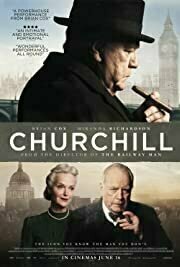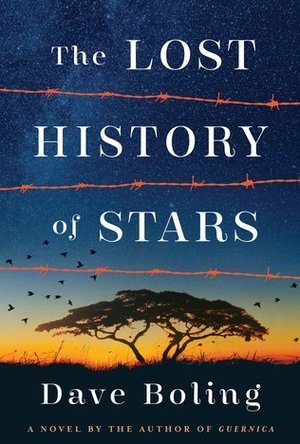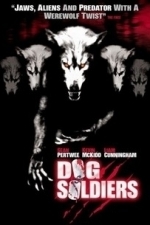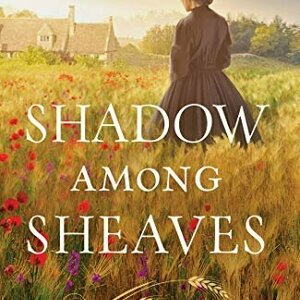Bob Mann (459 KP) rated Churchill (2017) in Movies
Sep 29, 2021
I’m not a historian but am married to one, so know the importance of “sources” in the pursuit of “truth”: one man’s terrorist is after all another man’s freedom fighter from a different perspective. Some sources on the internet (here for example) certainly suggest the The British (led by Churchill as Prime Minister) might have sensibly promoted the acceleration of the Italian campaign to reach Berlin rather than the far riskier Channel crossing.
This film however paints Churchill as a man demonised by his decision to send young men to their deaths in the fateful Gallipoli beach landings of World War One, with this – rather than a sensible strategic one – being the primary reason for opposing the Normandy landings. To further paint him as a bumbling old fool that is “worked around” by his peers strikes you as borderline libellous.
So the film’s script, by novice Alex von Tunzelmann, immediately set the wrong tone with me, and the undeniably strong performances of Brian Cox (“The Bourne Identity”) as Churchill and the wonderful Miranda Richardson (“Harry Potter” and the soon to be released “Stronger”) as Clemmie can’t fill the gap.
Besides anything else, diretor Jonathan Teplitzky (“The Railway Man”) delivers a piece so dull and lifeless, and with so much brooding, that its not remotely enjoyable. You think the introduction of a bullied secretary – Ms Garrett (Ella Purnell) – with a strong personal connection to ‘Overlord’ will add dramatic colour? But this angle too seems to go nowhere in particular.
There are many tales of the Normandy landings that are fascinating, over and above the dramatic sweep of “The Longest Day” (which is surely well overdue for a remake?) and Spielberg’s fictionalisation of the Niland brothers in “Saving Private Ryan”. How about the 2 out of 29 American amphibious tanks that reached Omaha beach after ignoring British advice to not launch so far from shore in rough seas?
So, as a film, it might be “worthy”. But I didn’t remotely believe the depiction of Churchill and it astonished me that such a rivetingly exciting period of British history could deliver a film that bored me. So, sorry, can’t recommend this one. Perhaps Joe Wright will have a better go with Gary Oldman as Churchill in “Darkest Hour”…
Nicole Hadley (380 KP) rated The Lost History of Stars in Books
Jun 16, 2018
The main character, Lettie, who is a thirteen year old Dutch-Africkaner girl comes from a poor farming family. She endures the loss of her home with her mother and two younger siblings when the scorched earth policy employed by the British during the Boer War burns their farm and forces them to leave in a wagon. Their African maid, Bina, tries to stay with the family, but is given no choice by the soldiers but to return to her people.
Lettie and her family are sent to a concentration camp where the conditions are awful. Her father, older brother, uncles, and grandfather are sent to fight the British with guerrilla tactics. Lettie worries and wonders about Bina and her family. Often Lettie remembers the songs and wisdom Bina shared during her childhood and the history of stars that Grandpa shared with her at night under the sparkling sky.
The story is told from Lettie's point of view. The reader learns of her experience in the concentration camp. Lettie attempt to find the good in small moments. Her more treasured possession is her English dictionary, which she reads for comfort to pass time.
The story switches between the present and past. This allows the reader to understand life before the war and during the war. It give the reader background information to understand the family dynamics.
David McK (3687 KP) rated The Lone Warrior (Jack Lark, #4) in Books
Jan 30, 2019
The novel starts out pretty much as it means to go on, with Jack rescuing someone from her indentured lifestyle, then agreeing to accompany her home to Delhi, arriving just in time to get caught up in the mutiny.
Despite holding a British passport myself (well, Northern Irish ...) this is actually a subject that I don't think we were ever taught anything about while I was at school. Sure, I'd heard of it, but only through word-of-mouth, and only ever forming a general impression of it rather than having any real knowledge of the cause, or the effects. As such, and (I.M.O.) like all the best kinds of historical fiction, I actually learned something while simultaneously being entertained (by the general story, NOT by the rather graphic depictions of some of the more harrowing events).
Talking of that story, I also feel that the book could (almost) be split into at least three distinct sections: Jacks journey to Delhi, his involvement in the siege of the British magazine while within it, and the final - and longest - part his involvement in the siege and (partial) recapture of the city.
Like the best of the Sharpe books (a hackneyed comparison, I know, but apt), I also read through this one in only a matter of days - always the sign of a good book!
Rob P (30 KP) rated Dog Soldiers (2002) in Movies
Jan 23, 2019
The plot has already been laid out here, the reasons to watch this movie aren't really based around storyline. It's more that a group of "everyman" type British soldiers are thrust into a bat sh*t crazy situation, fighting off seven foot werewolves inside an abandoned farmhouse in the Scottish highlands. Comedy is of course going to come with that.
If the premise doesn't grab you, come for Liam Cunningham (AKA Ser Davos Seaworth) playing a bad guy, it's such a brilliant thing to see his range. If that doesn't do it, come to hear Sean Pertwee say "We are now up against live, hostile targets. So, if Little Red Riding Hood should show up with a bazooka and a bad attitude, I expect you to chin the bitch."
The jokes and quotables are thick and fast, the makeup and costumes of the werewolves is still analogue, and the work put into them must have been immense. They are genuinely menacing, and it's nice to remind yourself that not everything needs to be computer generated to have impact.
As a last point, Id like to point out that besides the great cast, the comedy, and the quotes, this isn't really jump scare, or torture p*rn, it's just an old fashioned run and gun, action comedy horror. It also ends in a way I just haven't seen before, with the use of photographs in a particular "action shot" kind of way, set up during the movie. Excellent.
- Rob
MaryAnn (14 KP) rated Shadow Among Sheaves in Books
Nov 4, 2019
My Thoughts: In this novel, we learn about Britain's history of "The Great Rebellion" and how it affected the lives of both the British and of those whose homeland is India. The author brings the reader back to the customs of that era and of each nationality. It gives the reader focus on how the characters may feel and react in the story.
I really love the book of Ruth in the Bible and enjoyed how this novel mirrored that book. The author has done an incredible job of bringing this novel into perspective with the Biblical story of Ruth. The author has done an incredible amount of research to bring us a novel that shows the reader what it may feel like to be cast out, to be in a foreign land with different customs and to successfully parallel it to a biblical book in the Bible.
This is a book about redemption, love, and trusting in God. I truly enjoyed this novel and highly recommend it.
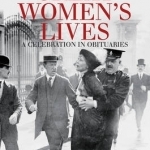
The Times Great Women's Lives: A Celebration in Obituaries
Book
This selection of Times obituaries from 1872 to 2014 revisits the lives of 125 women who have all,...
Eye Marty: The Newly Discovered Autobiography of a Comic Genius
Book
Completed before he died, thirty years ago, this is the newly discovered autobiography of one of the...

Friendships in Constant Repair: Perspectives on the Life of Stephen Oliver
Book
Stephen Oliver was quite simply, one of the most talented composers of his generation. His premature...
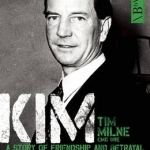
Kim Philby: A Story of Friendship and Betrayal
Book
Foreword by Phillip Knightley Kim Philby, the so-called Third Man in the Cambridge spy ring, was the...
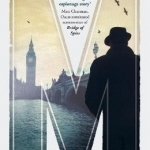
M: The True Story of Maxwell Knight: Maxwell Knight, MI5's Greatest Spymaster
Book
Maxwell Knight was a paradox. A jazz obsessive and nature enthusiast (he is the author of the...
